- Clone
- 7H2C65 (See other available formats)
- Regulatory Status
- RUO
- Other Names
- CD223, LAG-3, LAG3, lymphocyte-activation gene-3
- Isotype
- Mouse IgG1, κ
- Ave. Rating
- Submit a Review
- Product Citations
- publications
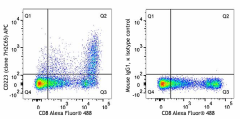
-

CD3/CD28/IL-2 stimulated (three days) peripheral blood mononuclear cells (PBMCs) were stained with CD8 Alexa Fluor® 488 and CD223 (Clone 7H2C65) APC (Left) or mouse IgG1, κ APC isotype control (Right).
| Cat # | Size | Price | Quantity Check Availability | Save | ||
|---|---|---|---|---|---|---|
| 369211 | 25 tests | £111 | ||||
| 369212 | 100 tests | £256 | ||||
CD223, also known as LAG-3, is a 70 kD type I transmembrane glycoprotein that is involved in T-cell signaling. Similar to CD4, CD223 binds MHC class II, but with a higher affinity. CD223 negatively regulates T-cell activation. It is expressed by activated T-cells and natural killer cells (NKs), as well as regulatory T-cells. It is transiently expressed on the surface of activated T-cells in acute conditions but high expression is maintained under tolerizing conditions. CD223 deficiency results in reduced tumor growth. CD223 and PD-1 can act in synergy and reverse exhausted phenotypes, improve tumor rejection, and control viral load.
Product DetailsProduct Details
- Verified Reactivity
- Human
- Antibody Type
- Monoclonal
- Host Species
- Mouse
- Immunogen
- Human LAG-3 transfected cells.
- Formulation
- Phosphate-buffered solution, pH 7.2, containing 0.09% sodium azide and BSA (origin USA)
- Preparation
- The antibody was purified by affinity chromatography and conjugated with APC under optimal conditions.
- Concentration
- Lot-specific (to obtain lot-specific concentration and expiration, please enter the lot number in our Certificate of Analysis online tool.)
- Storage & Handling
- The antibody solution should be stored undiluted between 2°C and 8°C, and protected from prolonged exposure to light. Do not freeze.
- Application
-
FC - Quality tested
- Recommended Usage
-
Each lot of this antibody is quality control tested by immunofluorescent staining with flow cytometric analysis. For flow cytometric staining, the suggested use of this reagent is 5 µl per million cells in 100 µl staining volume or 5 µl per 100 µl of whole blood.
- Excitation Laser
-
Red Laser (633 nm)
- Application Notes
-
The staining of clone 7H2C65 cannot be blocked by clone 11C3C65, which is another anti-human CD223 (LAG-3) antibody.
- Product Citations
-
- RRID
-
AB_2728373 (BioLegend Cat. No. 369211)
AB_2728373 (BioLegend Cat. No. 369212)
Antigen Details
- Structure
- 70 kD transmembrane glycoprotein, Ig superfamily, highly homologous to CD4.
- Distribution
-
Activated T-cells and natural killer cells (NKs) and regulatory T cells.
- Function
- Negatively regulates T-cell activation.
- Ligand/Receptor
- MHC class II molecules.
- Cell Type
- Dendritic cells, NK cells, T cells, Tregs
- Biology Area
- Immunology, Inhibitory Molecules
- Molecular Family
- CD Molecules
- Antigen References
-
1. Castelli C, et al. 2014. Oncoimmunology 3(11):e967146.
2. Poirier N, et al. 2011. Clin. Exp. Immunol. 164:265.
3. Juno JA, et al. 2015. Retrovirology 12:17.
4. Casati C, et al. 2006. Cancer Res. 66:4450. - Gene ID
- 3902 View all products for this Gene ID
- Specificity (DOES NOT SHOW ON TDS):
- CD223
- Specificity Alt (DOES NOT SHOW ON TDS):
- CD223 (LAG-3)
- App Abbreviation (DOES NOT SHOW ON TDS):
- FC
- UniProt
- View information about CD223 on UniProt.org
Other Formats
View All CD223 (LAG-3) Reagents Request Custom Conjugation| Description | Clone | Applications |
|---|---|---|
| Purified anti-human CD223 (LAG-3) | 7H2C65 | FC |
| Alexa Fluor® 647 anti-human CD223 (LAG-3) | 7H2C65 | FC |
| PE/Cyanine7 anti-human CD223 (LAG-3) | 7H2C65 | FC |
| PE anti-human CD223 (LAG-3) | 7H2C65 | FC |
| FITC anti-human CD223 (LAG-3) | 7H2C65 | FC |
| APC anti-human CD223 (LAG-3) | 7H2C65 | FC |
| APC/Fire™ 750 anti-human CD223 (LAG-3) | 7H2C65 | FC |
| PE/Dazzle™ 594 anti-human CD223 (LAG-3) Antibody | 7H2C65 | FC |
| PerCP/Cyanine5.5 anti-human CD223 (LAG-3) | 7H2C65 | FC |
| APC/Cyanine7 anti-human CD223 (LAG-3) | 7H2C65 | FC |
| PE/Fire™ 640 anti-human CD223 (LAG-3) | 7H2C65 | FC |
| PE/Fire™ 810 anti-human CD223 (LAG-3) | 7H2C65 | FC |
| PE/Fire™ 700 anti-human CD223 (LAG-3) | 7H2C65 | FC |
| Spark Red™ 718 anti-human CD223 (LAG-3) (Flexi-Fluor™) | 7H2C65 | FC |
Customers Also Purchased
Compare Data Across All Formats
This data display is provided for general comparisons between formats.
Your actual data may vary due to variations in samples, target cells, instruments and their settings, staining conditions, and other factors.
If you need assistance with selecting the best format contact our expert technical support team.
-
Purified anti-human CD223 (LAG-3)

PHA-stimulated (3-day) human peripheral blood lymphocytes we... -
Alexa Fluor® 647 anti-human CD223 (LAG-3)
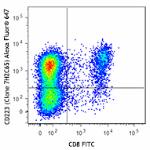
CD3/CD28/IL-2 stimulated (three days) peripheral blood monoc... 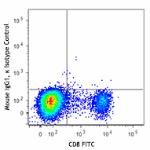
-
PE/Cyanine7 anti-human CD223 (LAG-3)

CD3/CD28/IL-2 stimulated (three days) peripheral blood monoc... -
PE anti-human CD223 (LAG-3)
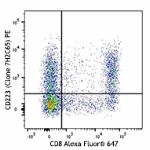
CD3/CD28/IL-2 stimulated (three days) peripheral blood monoc... 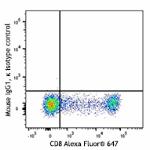
-
FITC anti-human CD223 (LAG-3)

CD3/CD28/IL-2 stimulated (three days) peripheral blood monon... -
APC anti-human CD223 (LAG-3)

CD3/CD28/IL-2 stimulated (three days) peripheral blood monon... -
APC/Fire™ 750 anti-human CD223 (LAG-3)

CD3/CD28/IL-2 stimulated (three days) peripheral blood monoc... -
PE/Dazzle™ 594 anti-human CD223 (LAG-3) Antibody

Anti-CD3/CD28 and recombinant IL-2 stimulated (three days) p... -
PerCP/Cyanine5.5 anti-human CD223 (LAG-3)

Anti-CD3/CD28 and recombinant IL-2 stimulated (three days) p... -
APC/Cyanine7 anti-human CD223 (LAG-3)

Anti-CD3/CD28 and recombinant IL-2 stimulated (three days) p... -
PE/Fire™ 640 anti-human CD223 (LAG-3)

CD3/CD28/IL-2 stimulated (three days) peripheral blood monon... -
PE/Fire™ 810 anti-human CD223 (LAG-3)

CD3/CD28/IL-2 stimulated (three days) peripheral blood monoc... -
PE/Fire™ 700 anti-human CD223 (LAG-3)

CD3/CD28/IL-2 stimulated (three days) peripheral blood monon... -
Spark Red™ 718 anti-human CD223 (LAG-3) (Flexi-Fluor™)
 Login / Register
Login / Register 










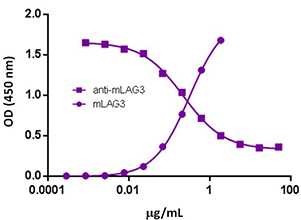
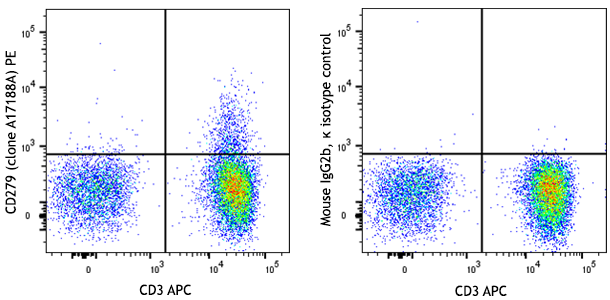
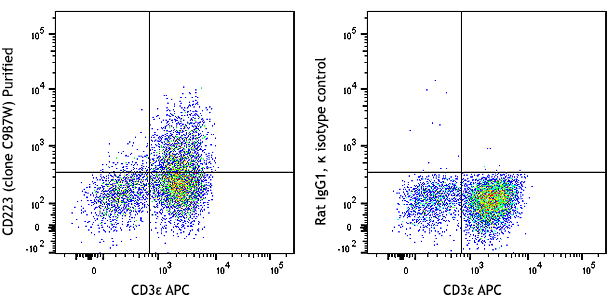
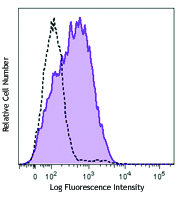



Follow Us